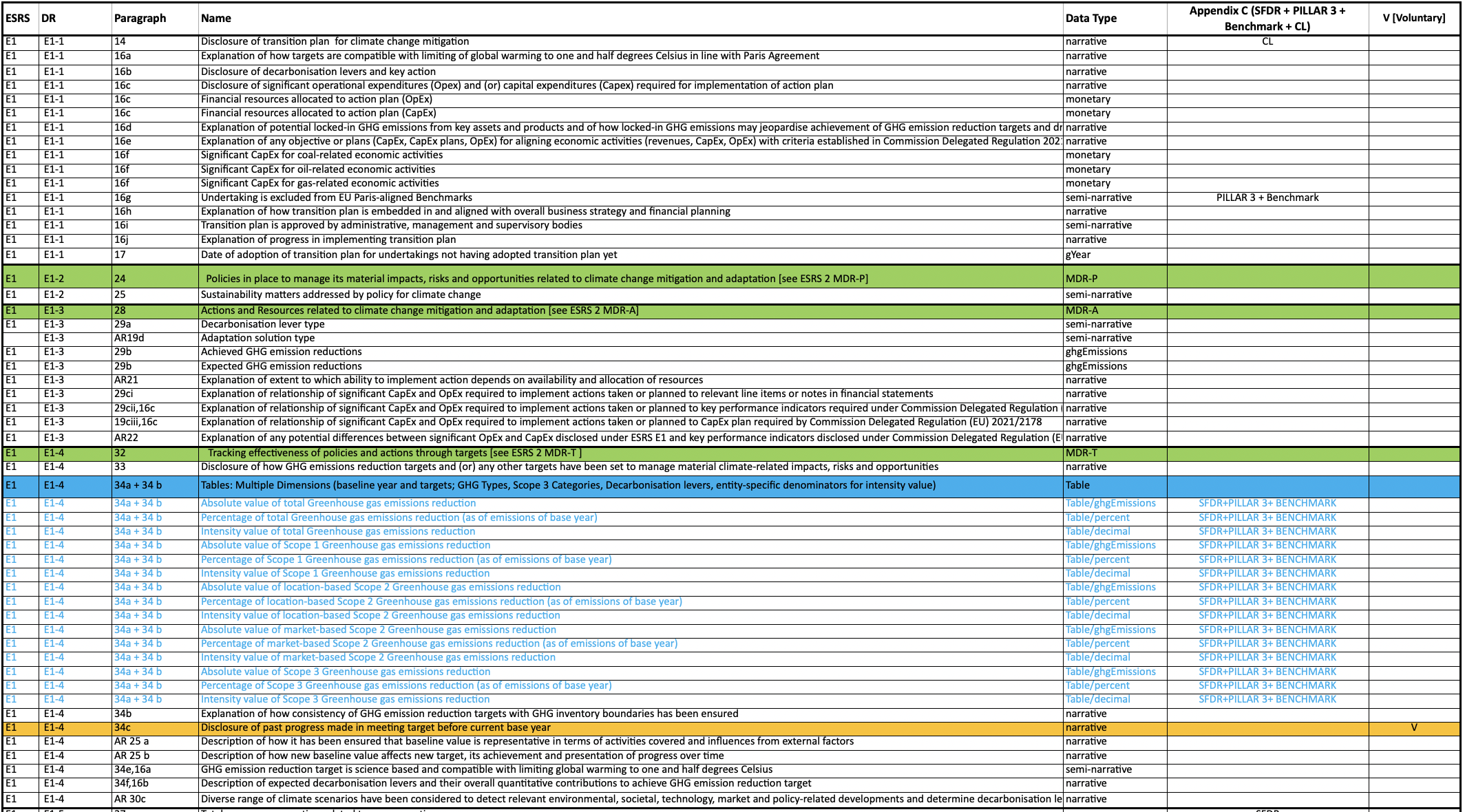Sustainability directors concerned about volume of ESRS data points

Sustainability directors have expressed concern about the compliance burden the European Sustainability Reporting Standard might place on them and their teams – estimating it would take 375 hours of work to fill the more than 1,100 data points making up the ESRS.
A draft list of ESRS data points published recently by EFRAG features 1,178 disclosures across 12 categories, causing cold sweats in sustainability circles.

“I estimate [about] 375 hours of time just to formulate the responses and drop the data into reporting documents. At seven hours solid focused work per day, five days a week; that's just under 11 weeks of time to dump content in the report. Nearly a quarter of the year for one person to draft the ESRS report content,” exclaimed Code Gaia Head of Sustainability Phillip Blumenthal in a Linkedin post.
At the end of October, the European Commission proposed delaying the implementation of sector-specific ESRS by two years as part of continued efforts to reduce the reporting burden associated with its Corporate Sustainability Reporting Directive (CSRD).
But sustainability professionals appear less concerned about the time frame to implementation, and more about the workload required to comply, since sustainability teams remain small – and reporting responsibilities often fall onto a single person.
New ESRS support from CDP
Carbon disclosure project CDP today announced a collaboration with EFRAG to support companies in implementing the ESRS. Under the partnership, CDP will align its disclosure system with the ESRS under the guidance of EFRAG.
It will also offer webinars and detailed technical guidance materials to support companies’ reports on ESRS data points, providing much needed support to concerned sustainability professionals.
“Our collaboration with CDP will help to accelerate these standards’ market uptake, building capacity among EU and non-EU businesses alike to use them as regulation comes in,” said Patrick de Cambourg, Chair of the EFRAG Sustainability Reporting Board.
The difficulty of going beyond the check-box exercise
Given the plethora of recent articles, webinars and conversations revolving around reporting requirements, several sustainability experts also sought to remind companies that disclosures do not equate sustainable transformation, and urged directors to go beyond a “check-box” exercise.
Alison Taylor, a sustainability professor at NYU Stern School of Business, said she has had several conversations recently about “ESG data, legal paranoia and an overwhelming new compliance, check the box approach to the whole topic.” She is of the opinion that, if considered an end in itself, sustainability disclosures are about as efficient as displaying calories on menus, “which in one study, encouraged people to cut, um, 8 calories a day”.
Meanwhile Harry G. Broadman, a member of the ESG Exchange Board of Directors and regular speaker on sustainability and innovation, penned a column arguing that business transformation requires companies to go beyond disclosures to integrate sustainability operationally.
But going beyond disclosures is one of the top challenges identified by Chief Sustainability Officers – and the overwhelming reporting requirements coming into force in the coming months and years are likely to make the problem worse.







Member discussion